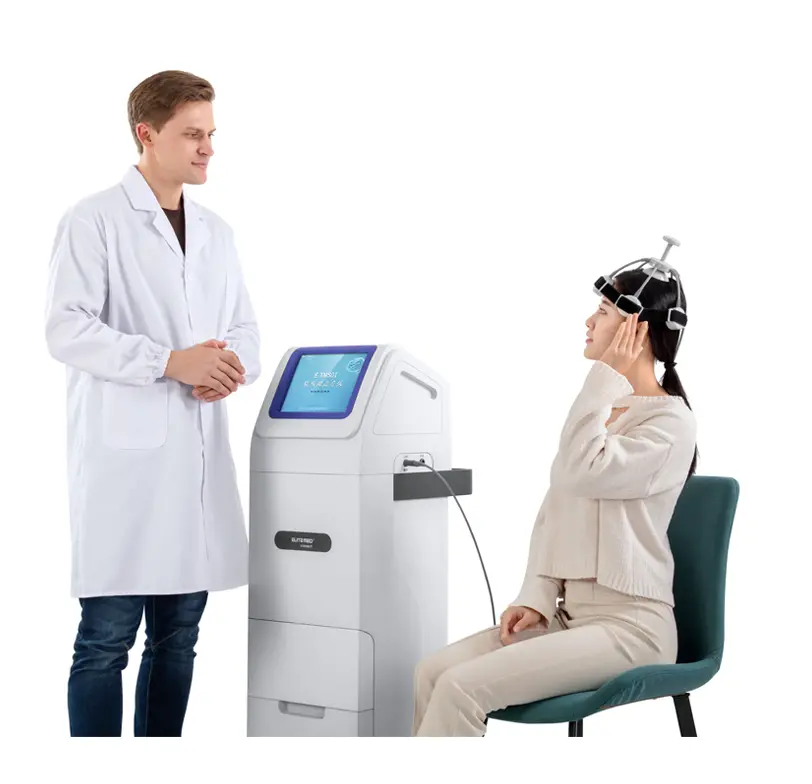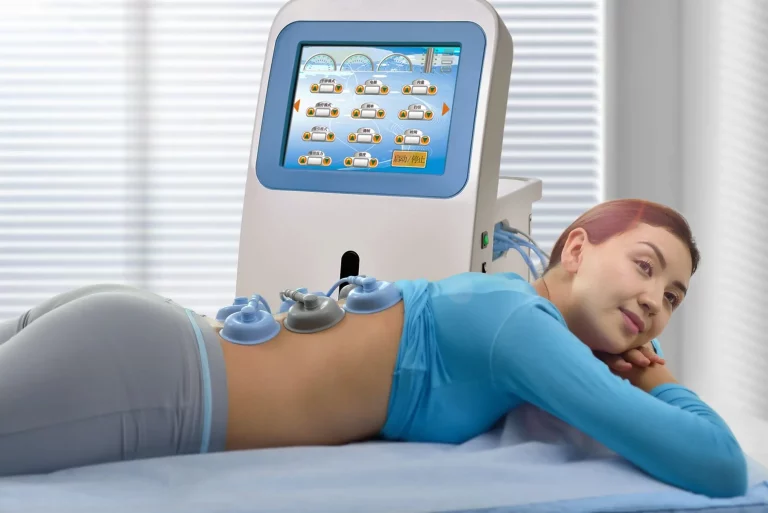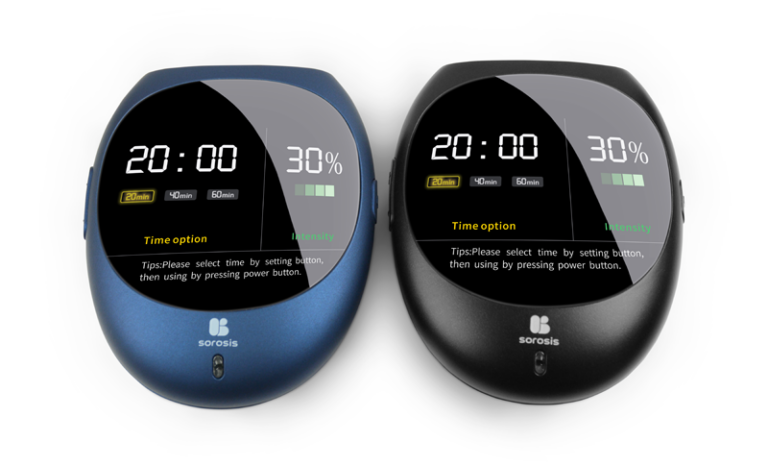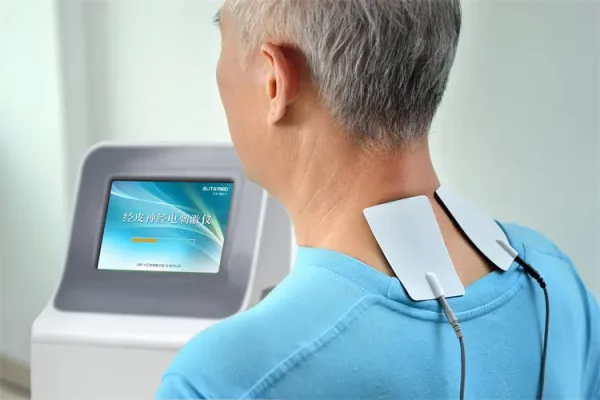Transcranial Direct Current Stimulation (tDCS) and Transcranial Magnetic Stimulation (TMS) are two prominent non‑invasive neuromodulation technologies. While both aim to modulate brain activity, their mechanisms, applications, and usability differ significantly. This article explores these techniques, clarifies their key distinctions, and maps them to EliteMedTech’s product offerings to help you decide which may best suit your needs.
What’s the Difference in Applications of tDCS vs TMS?
1. Mechanism of Action
tDCS passes a low-intensity direct electrical current (typically 0.5–2 mA) via electrodes positioned on the scalp. Neuronal excitability is enhanced by anodal stimulation and suppressed by cathodal stimulation. This sustained current subtly alters neuronal membrane potentials and promotes plasticity.
TMS employs rapidly changing magnetic fields to induce electric currents in cortical tissue through electromagnetic induction. When delivered in repetitive pulses (TMS), it can activate or suppress specific brain regions dynamically.
2. Equipment and Portability
tDCS devices are compact, battery-powered, and portable—often the size of a small microwave or even a mobile phone we offers several models:
A tDCS Brain Stimulation Machine designed for neurological rehabilitation (motor dysfunction, language impairment, swallowing disorders) Brain Stimulator tDCS Electrotherapy units for clinical and research applications. These are ideal for at-home or clinical use, offering controlled stimulation and ease of access.
TMS systems, in contrast, are larger and wall-powered—comparable to mini-refrigerators—and anchored in clinical environments. The TMS Series Transcranial Magnetic Therapy Apparatus and Physiotherapy TMS Machines meet CE and ISO standards and are used for diagnoses and treatment.

3. Clinical Applications
tDCS:
Being researched for depression, chronic pain, cognitive enhancement, stroke recovery, and Parkinson’s rehabilitation EliteMedTech’s tDCS devices specifically target motor dysfunction and cognitive impairments—supporting applications in neurorehabilitation post-injury
TMS:
FDA approved for major depressive disorder (since 2008), chronic pain (2013), OCD (2018), and used clinically for stroke rehabilitation, mapping motor/language functions, and more EliteMedTech’s TMS apparatus supports neurological treatments including cerebrovascular disease, neuropathy, anxiety, insomnia, and cognitive fatigue
4. Treatment Protocol & Efficacy
tDCS protocols usually involve 20–30-minute sessions, multiple times per week, with cumulative effects appearing over 4–6 weeks. Meta‑analyses support modest but meaningful benefits for depression and other disorders
TMS protocols involve 30–60-minute sessions administered by professionals, typically daily over 4–6 weeks. TMS is particularly effective for treatment‑resistant depression—response rates ~30–40%, with growing evidence for anxiety, OCD, and chronic pain.
5. Safety & Side Effects
tDCS is well‑tolerated: side effects include mild tingling or irritation at electrode sites—transient and typically harmless. Its safety profile enables supervised home use.
TMS may cause scalp discomfort, mild headaches, or muscle twitches during sessions. Though rare, there is a low risk of seizure—proper screening mitigates this TMS must be administered in a clinical setting.

6. Which is Best for You?
tDCS: Choose if you need a convenient, cost-effective solution for mild-to-moderate conditions (e.g. early-stage depression, chronic pain, rehab post-stroke). Ideal for at-home rehabilitation with supervision and flexibility.
TMS: Suitable for moderate to severe or treatment-resistant conditions where precise, clinician-administered neuromodulation is required. Optimal in medical centers where targeted, intense stimulation protocols are available. Our products supports clinicians and researchers with advanced tDCS and TMS devices designed for safety, quality, and clinical use.
Conclusively, tDCS and TMS offer distinct advantages depending on clinical objectives and context. For accessible, lower-intensity neuromodulation, tDCS devices from EliteMedTech deliver practical solutions tailored for at-home and clinical use. For higher-intensity, precision-targeted therapy for complex or resistant conditions, TMS machines present a powerful clinical option. Ultimately, consultation with a healthcare provider is essential to choose the methodology best suited to individual needs.



